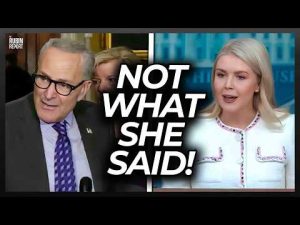**Title: Justice or Overreach? The Fallout from January 6th and the Current Political Landscape**
In the aftermath of the events that transpired on January 6th, 2021, the debate surrounding accountability and justice has only intensified. While many agree that violent acts, especially those attacking law enforcement, should be met with the full force of the law, a significant number of people are questioning the harsh penalties meted out to individuals who merely wandered into the Capitol building. These individuals, many of whom were seemingly invited in by Capitol police, are now facing repercussions that seem wildly disproportionate to their actions — often classified as misdemeanors such as trespassing.
Some argue that the justice system has not made proper distinctions among those involved in the Capitol incident. While it’s clear that violence deserves punishment, should those who entered the building peacefully face the same scrutiny? Observers note that these cases have stirred a wave of frustration among Americans, who feel that the legal system is applying a one-size-fits-all approach. Comparisons are being drawn to the lack of prosecutions against other groups, like Antifa, which has many citizens scratching their heads in confusion about the fairness of our justice system.
The controversy takes a deeper turn when discussing the motivations behind the actions of law enforcement post-January 6th. Officials have vowed to hunt down every person who stepped foot inside the Capitol, regardless of whether they committed a serious crime or not. This approach appears to send a message of zero tolerance, leading some to wonder if the penalties are aimed more at making an example out of individuals rather than administering fair justice. Critics argue that such pursuit could be construed as more of a political statement than a genuine effort to uphold the law.
In the background of this situation, another significant issue has emerged concerning local and federal law enforcement relationships, particularly regarding immigration. The debate now extends beyond the Capitol and into what some are calling “breakaway cities” where local authorities refuse to cooperate with federal immigration laws. This disregard for federal authority raises concerns over the integrity of the Constitution and the rule of law in the United States. Some are drawing parallels between these actions and the historical Confederacy, suggesting a troubling trend of nullification.
The implications of these dual narratives—one involving the Capitol riot and the other concerning local efforts to bypass federal law—have ignited fierce discussions about what it means to uphold the law in America. With the ever-widening gap between how different groups are treated under the law, questions arise about who truly benefits from this divide. Is this a tactic to solidify political power through fear or control, or a legitimate effort to protect citizens and uphold laws? This uncertainty looms large in the minds of many as next elections approach.
As the nation grapples with these competing narratives, it becomes increasingly essential to demand clarity, fairness, and proper judicial processes. The scales of justice should ideally balance fairly, regardless of one’s political affiliation or the current hot-button issues. It’s a reminder for all that our nation must strive to uphold its democratic ideals without letting political agendas overshadow the importance of justice for all. In the great tapestry of American governance, navigating these deep divides will be among the most challenging tests for the country moving forward.







